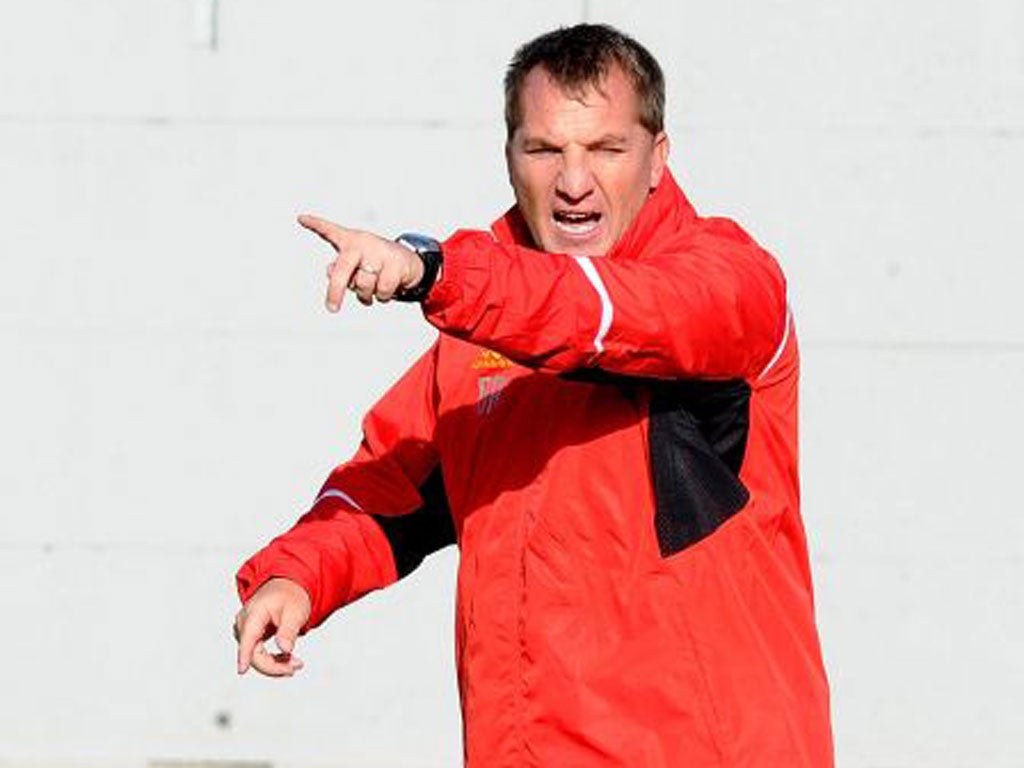Your support helps us to tell the story
From reproductive rights to climate change to Big Tech, The Independent is on the ground when the story is developing. Whether it's investigating the financials of Elon Musk's pro-Trump PAC or producing our latest documentary, 'The A Word', which shines a light on the American women fighting for reproductive rights, we know how important it is to parse out the facts from the messaging.
At such a critical moment in US history, we need reporters on the ground. Your donation allows us to keep sending journalists to speak to both sides of the story.
The Independent is trusted by Americans across the entire political spectrum. And unlike many other quality news outlets, we choose not to lock Americans out of our reporting and analysis with paywalls. We believe quality journalism should be available to everyone, paid for by those who can afford it.
Your support makes all the difference.A young manager comes in to succeed a man regarded as an icon at the club. The summer sees a huge turnover in staff. The style of football is radically overhauled but the season starts badly and, although the fans appreciate the passing game, only one of the first nine fixtures is won. Home results are especially poor and the day after the club's Christmas party Brendan Rodgers is fired by Reading.
Failures are often as revealing and compelling as a manager's triumphs. More has been written about Brian Clough's 44 days at Leeds United than his six years at Derby County. You can only understand the furious passion that drove Sir Alex Ferguson to the summit by examining his sacking at St Mirren and the industrial tribunal that followed which concluded that Ferguson "possessed no managerial ability whatsoever".
There are some surface similarities with Ferguson and Rodgers. The former was given the tribunal's body blow just before Christmas and each suffered the loss of a parent while they recovered from it.
However, substitute Steve Coppell for Kenny Dalglish, add the trials of a difficult first summer which led to a reliance on young talent, plus a poor beginning, and there seem much more striking parallels with his time at Liverpool.
Nevertheless, Rodgers is a stronger, perhaps more realistic, man than the one who in December 2009 found himself unemployed in the town where had lived for 20 years.
"Does it make you a stronger person? Before the experience at Reading my answer would have been no because you don't know what's in the future," Rodgers said before this afternoon's reunion at Anfield. "But, when I had that six months of reflection between jobs, there was that realisation I had to be more clinical when I arrived at Swansea."
Rodgers, who had made his reputation as a youth-team coach at both Reading and at Chelsea under Jose Mourinho, reflected that he had been too radical in his desire to change the way Reading played and in his faith in young footballers.
"I was trying to work on a totally different philosophy to what the club had before. They had 10 years of playing a totally different brand of football. Mine was about developing young players and always giving them an opportunity.
"I wouldn't cut them after one or two games. You wanted to see how they got on after six or seven but, before I knew it, I was out after 20-odd matches."
One of them, a 1-0 home defeat by Leicester City, was typical. Afterwards a Reading fan posted on a forum: "Lots of people were purring, almost crowing about the performance. It's the best I've seen us play this season, too. But we didn't score and we lost and that leads to only one thing. Relegation."
Reading were 21st in the Championship when their chairman, Sir John Madejski, took what he described as "the hardest decision of my life" and fired Rodgers, whom he had known since he was a teenager. In public, perhaps to lessen the blow, Madejski pinned the blame on his backroom staff of Frank Lampard Sr and Dean Austin, both of whom also lost their jobs.
Afterwards, I thought: 'You carry on with your way of working and your values but get to the end point quicker'," Rodgers said.
"If someone is showing signs of failing, you may need to put someone else in – and give them three or four games rather than 10. At Swansea I had one of the top goalscorers in the division at the time in Darren Pratley but in the second half of the season he didn't play so much because it was about the team. In the past I might have played him. I still have the values I believe in but sometimes you have to have flexibility."
The story had its own twist. Rodgers took Swansea to the Premier League via a play-off final victory over Reading and come the finish he embraced Madejski and shook as many of his former players' hands as he could. Under the same circumstances, Ferguson and Mourinho, who left Benfica after three bitter months, might have behaved differently.
Managerial blips: Greats who faltered
Bobby Robson, Fulham (10 months)
After failing to avoid relegation in 1968 he learned he had been sacked driving past a newspaper billboard.
Brian Clough, Leeds (44 days)
Two Leeds managers have lasted 44 days. Jock Stein, however, did not drive away shouting "I've won the bloody Pools" as Clough was depicted in 'The Damned United'.
Alex Ferguson, St Mirren (four years)
Fergie has only been sacked once but it was messy, decided at a tribunal that condemned him absolutely.
Jose Mourinho, Benfica (three months)
Benfica's president did not fancy the Special One preferring his own man, Toni. One now manages Real Madrid, the other works in Iran.

Join our commenting forum
Join thought-provoking conversations, follow other Independent readers and see their replies
Comments